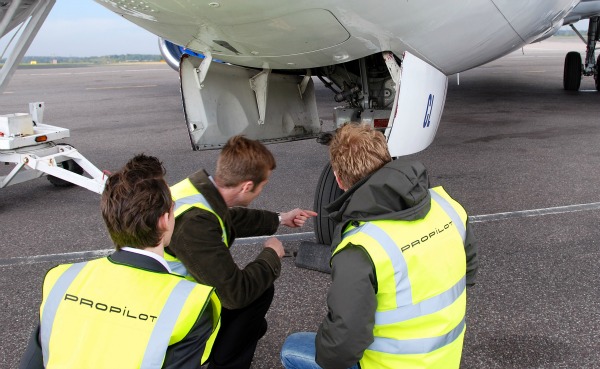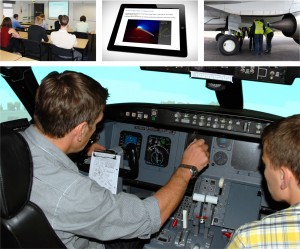
ProPilot aims to develop commander qualities that make for a safer, commercially aware and highly knowledgeable pilot
Recently, Pilot Career News reported on Ian Calvert’s talk which emphasised the importance of training future pilots with a Captain’s skill set in mind. In this piece, Jacqui Suren, Chief Ground Instructor of UK approved training provider ProPilot, explains why she believes it’s essential the same attitude is applied to pilot ground training.
Last month, Pilot Career News featured a report on the Asia Pacific Airline Training Symposium (held in Singapore at the end of August) in which Ian Calvert, MD of CTC Aviation Training (NZ) Ltd urged Flight Training Organisations and airlines worldwide to ensure they select and recruit tomorrow’s pilots with a Captain’s skill set in mind.
And I believe he is absolutely right. The thorough training of the captains of tomorrow needs to be happening now. Pilots with superb commander skills and expertise are, and will continue to be, vital for an airline’s highest standards of safety, as well as its commercial success.
Mr Calvert stated, “No longer can training be just about teaching stick and rudder skills. Cadets must be guided in decision making – in and out of the training environment – in areas related to teamwork, career planning, plus inter-personal and communications skills.”
This holistic, career-minded approach needs to be applied as much to ground training as it does to flight training. Students need excellent theoretical knowledge and, crucially, the business understanding and management skills that airlines require too.
Increasing commercial pressures have led to many approved training organisations (ATOs) increasing the ratio of students to instructors, with bigger class sizes, more computer based training, less instructor contact time, overly condensed courses and then, as a result, a reliance on rote learning of question bank answers.
But this does not result in the kind of graduates future employers are looking for. Airlines have told us they are seeing new pilots at interview whose theoretical knowledge and ‘professionalism’ are not up to scratch, nor is their ability to understand, relate and apply their knowledge to the business they are entering.
The aviation industry has entered a new era. Profit margins are tighter than ever and airlines want pilots who perform at the highest levels of safety and professionalism. Captains need the skills and experience to balance safety with the commercial requirements of an increasingly tough industry. But how can you make commercial decisions if you do not have the technical or operational understanding to base it on?

Captains need the skills and experience to balance safety with the commercial requirements of an increasingly tough industry
If ever there was a time when thorough, applied, professional ground training was needed, it is now.
When selecting a training provider, a student should look for an ATO who will help develop professional attributes, technical knowledge and commercial understanding – alongside excellent results.
ATOs themselves need to be delivering thorough and applied training. Commercial pressures and the need to keep costs down are inevitable but this can be done intelligently and strategically, resulting in more focused training with improved results.
The biggest challenge to address is the need for greater integration and application of knowledge between flight and ground training, so that students understand the ‘how’ and ‘why’ of ATPL theory long after their exams are over. Rote learning of question banks will not deliver this kind of applied, long-term knowledge.
Some ATOs are starting to see and address these requirements. Future pilots should boldly and comprehensively question any ATO they are considering, as well as its graduates, to ensure the training offered would equip them in every way for their future career.
The aim of ProPilot, from its launch in May 2011, has been to provide applied ground training of the highest standard alongside a strong focus on professional development; developing commander qualities that make for a safer, commercially aware and highly knowledgeable pilot. www.propilot.eu
Jacqui Suren is the CGI of ProPilot, former CGI of Atlantic Flight Training and past instructor at OAA, BAe and Cabair. She is also a ProPilot, OAA and Jeppesen technical author and has been involved in airline recruitment programmes.
